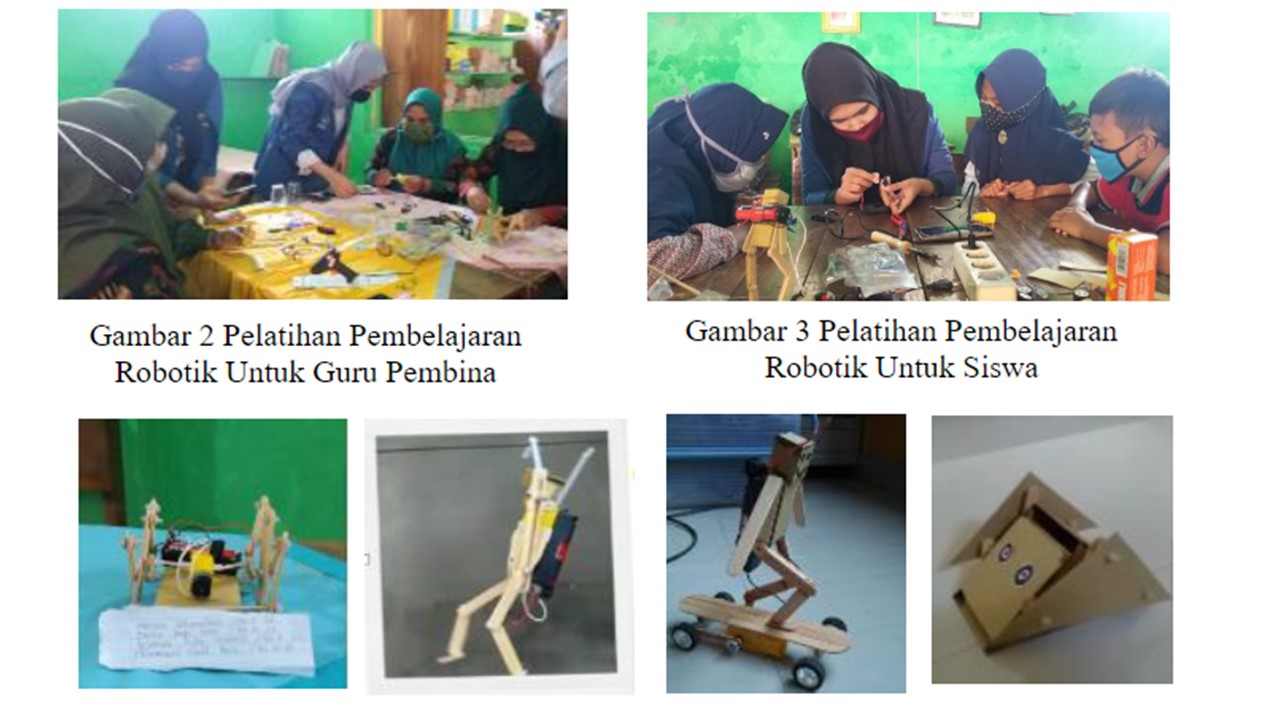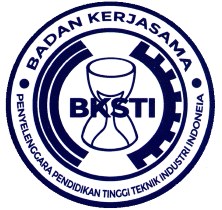PEMBELAJARAN ROBOTIK UNTUK MEMPERSIAPKAN GENERASI MUDA MENGHADAPI REVOLUSI INDUSTRI 4.0 DAN SOCIETY 5.0
DOI:
https://doi.org/10.12928/spekta.v1i2.2826Keywords:
Robotic, Education, Technology, Industrial revolusion 4.0, society 5.0Abstract
The basic difference between the Industrial revolution 4.0 and society 5.0 is that in the era of the industrial revolution 4.0 technology and computers are used in all human activities, while the era of society 5.0 is an era in which technology becomes a part of humans themselves. The internet is no longer a source of information, but is used to live life. To prepare the young generation to face all the challenges that arise in the era of industrial revolution 4.0 and society 5.0, it is necessary to work hard for educational institutions to educate their students to be ready to face the changing times, and this must start from the most basic level of education, namely at elementary school level (SD and SMP). For this reason, this community service program was arranged, namely improving the quality of education by providing robotic learning training for supervisory teachers and elementary school (SD) students so that they become a generation ready to face all the challenges of the industrial revolution era 4.0 and the society 5.0 eraReferences
M. Agus Samsul Arifin, Munoto 2017 Rancang Bangun Prototype Robot Lengan Menggunakan Flex Sensor dan Accelerometer Sensor Pada Lab Microkontroler STMIK Musirawas Jurnal Ilmiah ILKOM Vol 9 No3
Fathur Zaini Rachman 2016 Robot Penjejak Ruangan Dengan Sensor Ultra Sonik dan Kendali Ganda Melalui bluetooth Jurnal Teknologi Terpadu Vol 4 No2
Fretycia Laurenty, M. Rahmad, Yennita 2018 Penerapan Pembelajaran Dengan Pendekatan Integrasi Sains dan Agama Untuk Meningkatkan Motivasi Belajar IPA Fisika Siswa Jurnal Online Mahasiswa Fakultas Keguruan Dan Ilmu Pendidikan Universitas Riau,
https://www.neliti.com/publications/204235/penerapan-pembelajaran-dengan-pendekatan-integrasi-sains-dan-agama-untuk-meningkatkan
Dessy Agustina, Ida Kaniawati, Irma Rahma Suwarma 2017 Penerapan Pembelajaran Berbasis STEM Untuk Meningkatkan Kemampuan Kontrol of Variable Siswa SMP Pada Hukum Pascal Prosiding Seminar Nasional Fisika (E-Journal) SNF Vol VI
https://doi.org/10.21009/03.SNF2017
Syarifah Rahmiza M, Adlim, Mursal 2015 Pengembangan LKS STEM Dalam Meningkatkan Motivasi Dan Aktivitas Belajar Siswa SMA Negeri 1 Beutong Pada Materi Induksi Elektromagnetik Jurnal Pendidikan Sains Indonesia Vol 03 No 1 p 239-250
Yeping Li, Ke Wang, Yu Xiao, and Jeffrey E. 2020 Research and Trends In STEM Education; a Systematic Review Of Journal Publications International Journal of STEM 7:11
https://doi.org/10.1186/s40594-020-00207-6
Baradista Dimas Leotman, Darwin Rio Budi Syaka dan Priyono 2016 Pengembangan Robot Edukasi Sebagai Media Pembelajaran Ektra Kurikuler Robotik Studi Kasus SMP Almuslim Bekasi Jurnal Pendidikan Teknik dan Fokasi Vol 2 No 2.
DOI: https://doi.org/10.21009/JPTV.2.2.4
Rahimuddin, Syarifuddin Syarif, Rafiuddin Syam , Arzaq, Agung Setiawan, Syahrul AlQadri 2019 Robot Penggerak Dua Roda Sebagai Media Pembelajaran Robotik Bagi Siswa SMA 05 Barru Jurnal Teknologi Terapan Untuk Pengabdian Masyarakat Vol 2 No 2.

Downloads
Published
How to Cite
Issue
Section
License
Copyright (c) 2020 F Faridawati Faridawati, Eko Minarto, Ika Istiana Wati, Sutrisno Sutrisno, Lukman Hakim

This work is licensed under a Creative Commons Attribution-ShareAlike 4.0 International License.
Authors who publish with SPEKTA (Jurnal Pengabdian Kepada Masyarakat: Teknologi dan Aplikasi) agree to the following terms:
- Authors retain copyright and grant the journal the right of first publication with the work simultaneously licensed under a Creative Commons Attribution License (CC BY-SA 4.0) that allows others to share the work with an acknowledgment of the work's authorship and initial publication in this journal.
- Authors are able to enter into separate, additional contractual arrangements for the non-exclusive distribution of the journal's published version of the work (e.g., post it to an institutional repository or publish it in a book), with an acknowledgment of its initial publication in this journal.
- Authors are permitted and encouraged to post their work online (e.g., in institutional repositories or on their website) prior to and during the submission process, as it can lead to productive exchanges, as well as earlier and greater citation of published work.

This work is licensed under a Creative Commons Attribution-ShareAlike 4.0 International License.












